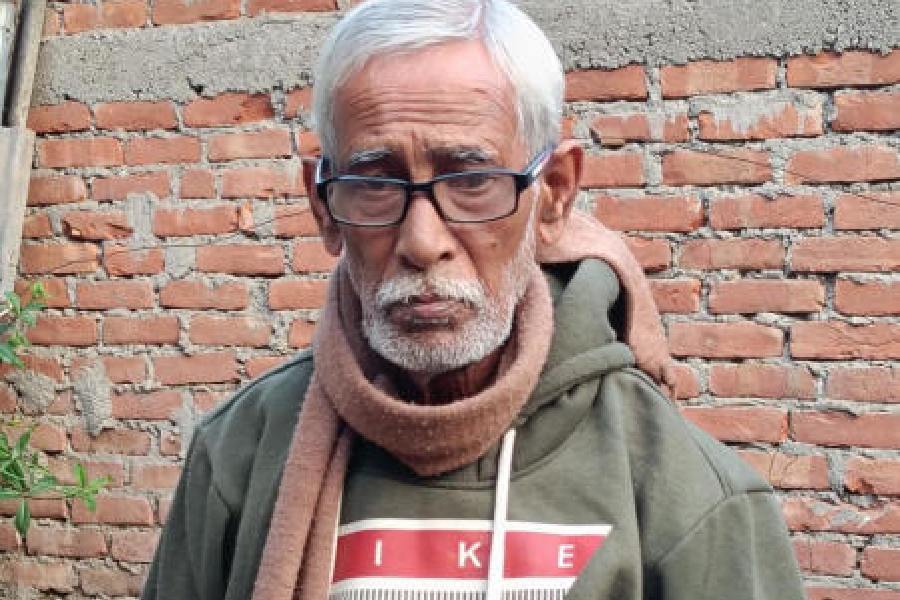As a youth, he had hidden his sacred thread and taken up the name of Shamsher Ali to spy on the Pakistan troops during the 1971 war.
It was his contribution to his country's independence, said Somnath Choudhury, a former Mukti Yoddha of Bangladesh.
Now a 78-year-old resident of Chalsa, Jalpaiguri, Choudhury is pained to witness the ongoing turmoil in his erstwhile homeland.
He wants the Bangladesh government to pull all stops to protect Hindus and other minorities there.
Choudhury, who recollected those action-packed days ahead of the Vijay Diwas, narrated how he had risked his life to pass information about Pakistani troops in the then east Pakistan (now Bangladesh) to the Indian army.
In India and Bangladesh, the Vijay Diwas is celebrated on December 16 every year to mark the victory of the Indian forces over the Pakistani troops in the Bangladesh war of liberation.
Born in Rangpur, Choudhury was in his thirties when he joined the Mukti Yoddha Bahini, the youths in east Pakistan who fought against the Pakistani army to liberate the country.
“The Indian army assigned me the task of clicking photos of the Pakistani troops and sending those to them so that they can draw up combat strategies. I was sent to Kustia and Faridpur with the cover of a photographer of a popular Bengali daily of the country,” said Choudhury.
The Bengali Brahmin took up the name of Samsher Ali to conceal his identity. “I had put my poitey (the sacred thread) in a maduli (amulet) to ensure that the Pakistani troops did not know that I am Hindu. I had even learnt Urdu to interact with them and know about their movements,” said the septuagenarian.
As the war continued, Choudhury moved to different locations, clicking photos of the Pakistani army and sending those to the Indian defence forces.
“I took out my poitey on December 16, 1971, wore it, and returned home with the feeling that I have done something for my country’s independence,” he said.
He continued to stay in Bangladesh but in 1975, when Sheikh Mujibur Rahman was assassinated, Choudhury decided to leave the country.
“I reached Chalsa and have been staying here since then with my family. What I see on television and read in newspapers these days pains me. Unfortunately, a section of Bangladeshi leaders are fuming at India...,” he said.
“These are the people whose ancestors had supported Pakistan and had never wanted an independent Bangladesh,” added Choudhury.
The Mukti Yoddha soldier, however, still hopes for peace and good sense to prevail.
“I firmly believe that this situation will change. The people of Bangladesh, the descendants of the Mukti Yoddha Bahini, cannot accept such fundamentalist diktats that are affecting the country on all fronts,” he said.











